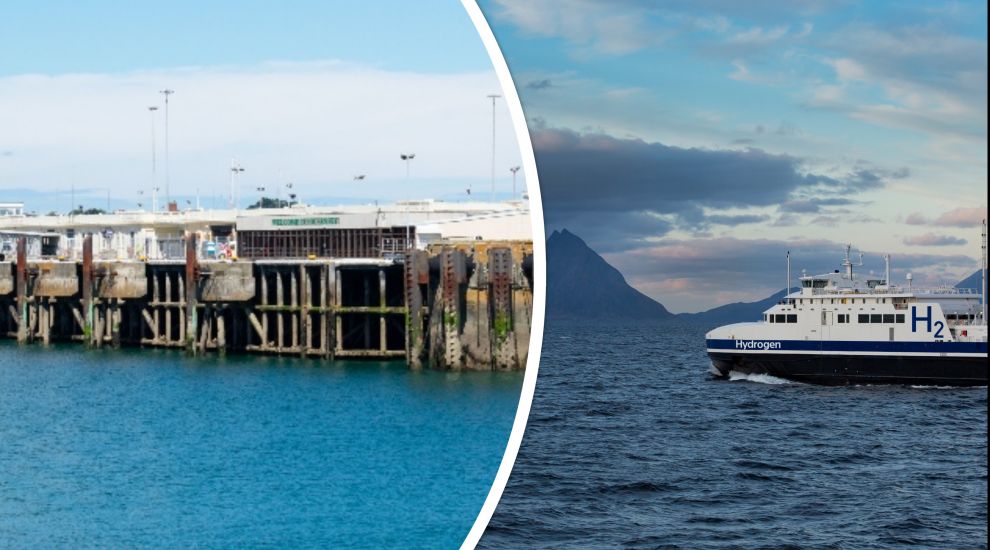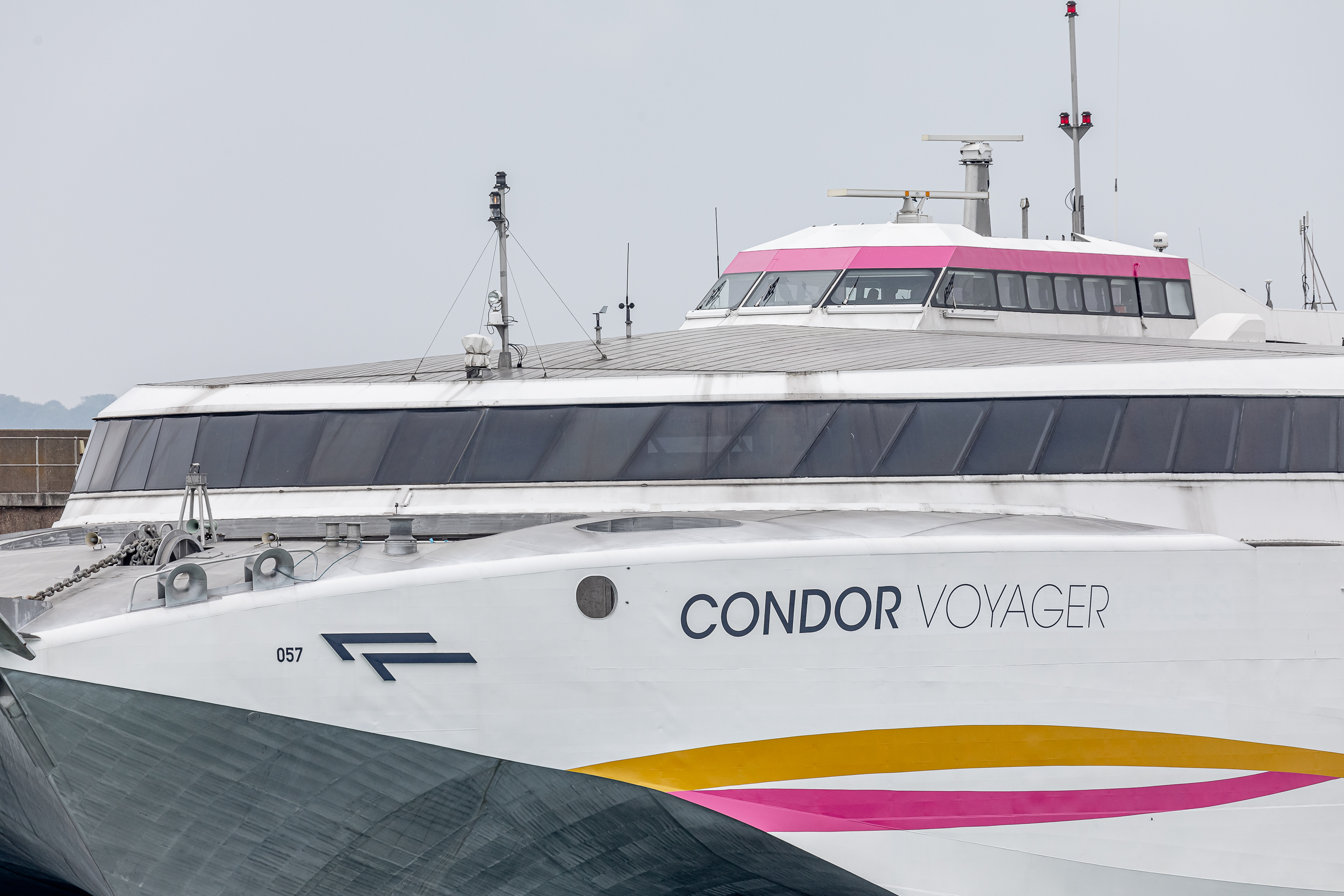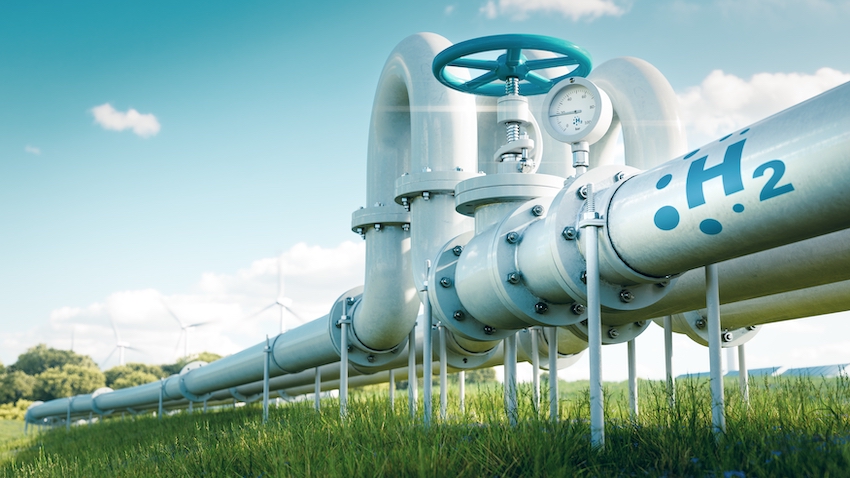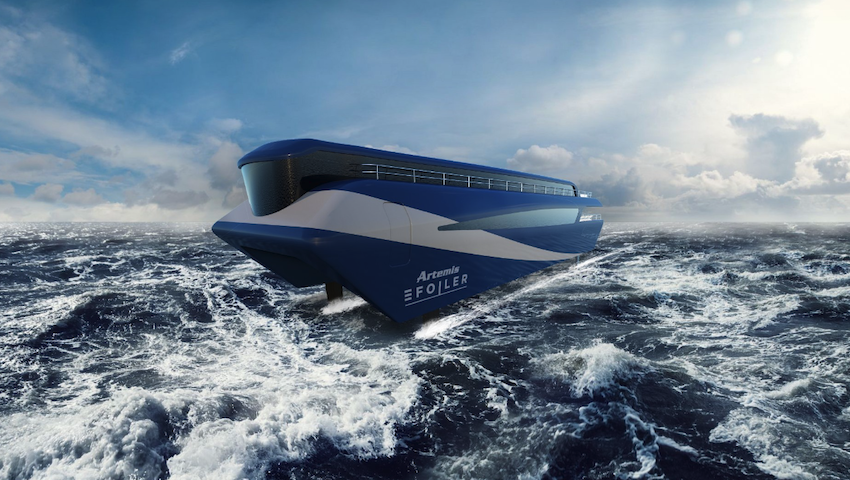


Over the next five to ten years international legislation will likely force all major ferry firms to change the way they operate, with a push towards decarbonisation and alternative fuels.
According to the European Commission on CO2 Emissions from Maritime Transport, the industry accounts for 3-4% of the EU’s total CO2 emissions.
The International Maritime Organisation has now pledged to reduce greenhouse gas emissions with a tranche of reduction measures. This’ll include ferries over a certain size having to monitor and report emissions and all shipping companies being required to purchase emissions allowances.
Notably, several steps have been announced to boost the demand for alternative fuels, something which both Guernsey Ports and Condor are keeping an eye on.

Pictured: Condor's fleet currently runs on diesel engines.
“CONDOR and its shareholders – CTI and Brittany Ferries – are looking to the future of ferry travel which includes exploring ways of reducing our carbon emissions and providing more sustainable solutions,” said a spokesperson for the ferry firm.
“We are aware that international legislation may impact all ship operators around the world... so all ferry operators around the world, including ourselves, are discussing options with engine manufacturers, along with port partners on our network regarding landside infrastructure needed to supply the yet-to-be defined solution.”
While more environmentally friendly diesels and biofuels are potential solutions to any future push towards decarbonisation, the single most appealing option is hydrogen.
The only emission produced by hydrogen engines is water and earlier this month the first commercial hydrogen ferry was trialled across the San Francisco Bay.

It’s thought that hydrogen powered ferries could replace almost half of those operating in some of the largest shipping lanes in the world.
However, the production of ‘grey’ hydrogen fuels is very fossil fuel intensive at source, and green hydrogen – extracted from water – can’t be produced on the scale required for the industry yet.
Additionally, storing hydrogen is incredibly difficult and requires specialist tanks and equipment.
While a move to alternative diesel fuels could be facilitated in Guernsey relatively easy, the island’s Harbour Master said hydrogen would require big changes in infrastructure.
“Future provisions for alternative fuels is something that port authorities internationally are having to consider, although from a local perspective there is no requirement for the foreseeable future,” said Captain David Barker.
“Precisely what this would involve will depend very much on the type of fuel. More environmentally friendly diesels and biofuels would be relatively straightforward as they are direct replacements for existing hydrocarbons. They would therefore not require any additional infrastructure, just a change in the supply chain.
“Hydrogen on the other hand might present more of a challenge, as we do not have any storage or production infrastructure for that on-island. If we did have, then as with these other biofuels there would potentially be non-maritime applications, such as replacing fossil fuels in heating or transport. That could be the driver for developing facilities for hydrogen, rather than it being a harbour requirement in the immediate future.”
In the short term, while hydrogen fuels continue to evolve and become more ‘green’, it’s likely that electric ferries will start to become more popular.
There are already several companies around the world operating either hybrid or fully electric ferries. And Condor is already pointed in this direction.
“One... initiative we have been looking to develop a revolutionary, electric powered hydrofoil as part of Belfast Maritime Consortium,” said a spokesperson for the firm.
“As operational partner, Condor is to run a pilot scheme on a key commuter route in Northern Ireland in 2024. Shoreside electrical power is highly likely to form part of the solution.”

Pictured: Concept art for the hydrofoil.
Condor’s CEO, John Napton, said: “Condor and our shareholder CTI are looking to the future and this includes exploring ways of reducing our carbon emissions and finding ways to provide more sustainable travel solutions.
“We are also acutely aware that international legislation may well impact all ship operators over the next 5-10 years so it is prudent to be involved in this exciting project now.
“As an experienced ferry company, we are happy to accept the invitation to join the consortium and help develop this technology for commercial use.”
The electrification of a ferry service would require heavy investment in shore infrastructure, including energy storage systems, charging systems and monitoring devices. While Condor is only helping guide the development of electric ferry technology at the moment, it’s not hard to imagine that ‘electrification’ will become the preferred next step.
Comments
Comments on this story express the views of the commentator only, not Bailiwick Publishing. We are unable to guarantee the accuracy of any of those comments.